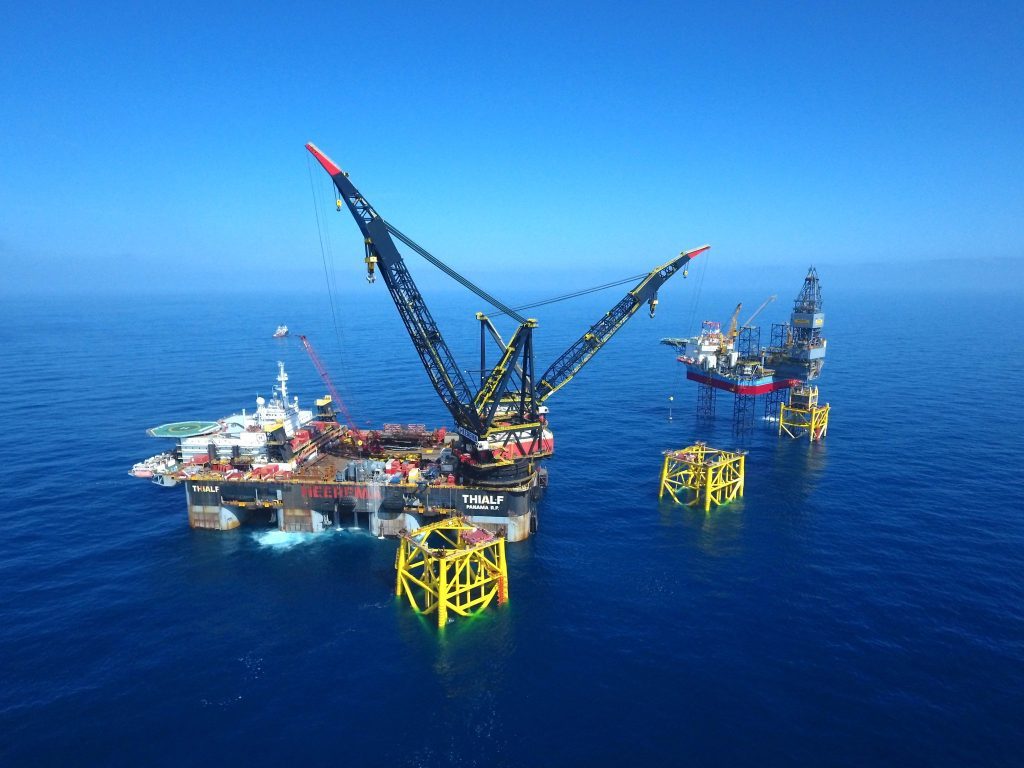
Scottish oil and gas sales saw an 18.2% increase to £20billion in the last financial year.
New figures have been published by the Scottish Government showing a boost in sales for 2017-18, although production has dipped.
The sales value is up by from £16.9bn in 2016-17 thanks to higher oil prices.
However, production dropped 1.7% on the previous year, with an estimated 73.7million tonnes of oil equivalent produced in the country’s waters.
Total production remains well below the 1999 of 136.9million tonnes of oil equivalent, which declined steadily until 2014 and has since stared to pick back up.
Scotland accounted for 81% of the overall UK total, down from 82% the previous year.
The majority of crude oil production took place in Scotland, meaning Scottish production of sales income was higher than the production 81% share, as crude oil is more expensive than gas.
Operating costs on oil and gas production in Scotland increased to £6.2billion, up from £5.3billion in 2016-17, however this does not include decommissioning.
Capital spending was down to £8billion, from £10.1bn the previous year.
The Scottish Government initially said estimated sales in 2016-17 were £17.5bn, but this was later revised down to £16.9bn.
Energy minister Paul Wheelhouse, said: “These figures reflect the increased price of oil and gas on the global markets and show confidence is continuing to return to the sector.
“Capital investment in oil and gas fields in Scottish waters remains strong at around £6 billion in financial year 2017-18, and oil production is up slightly.
“At the same time the industry faces continuing challenges, including issues around exploration, and the Scottish Government will continue to do what we can to support the sector.
“However, the UK Government retains most of the key policy levers affecting the offshore sector, so we will continue to argue they should bring forward measures to rebuild exploration activity and to maximise economic recovery, while also providing an immediate boost to the supply chain.”
INDEPENDENCE DEBATE
Oil and gas production was a key battleground on the 2014 Scottish independence debate.
The SNP stressed the importance of oil and gas in the case for independence, with other countries like Norway using its resources to grow its economy.
However, oil prices fell sharply in the following months, with the sector only now starting to emerge from what is considered one of the most turbulent downturns in its history.
The downturn saw UK revenues from North Sea oil dip into negative territory in 2015, but has since recovered slightly.
The Oil and Gas Authority, which was created in 2015, estimates there are up to 20billion barrels of oil equivalent remaining in the North Sea.
Earlier this week, trade body Oil and Gas UK published its 2018 economic report, stating it expects activity to pick up in the coming years, however this may put a squeeze on the supply chain which has been badly hit by the downturn.
Colin Clark, Scottish Conservative MP for Gordon, said: “This Conservative government has worked hand in glove with the UK oil and gas industry throughout the recent downturn.
“The Treasury was able to absorb the loss of revenue thanks to the broad shoulders of the UK economy.
“An independent Scotland, in contrast, would have been crippled by the collapse in the global price of oil.
“Scotland would have faced tax rises, spending cuts and increased borrowing – or most likely a toxic combination of all three.
“Under the Conservatives, we have seen unprecedented steps to support the North Sea sector, including tax breaks worth £2.3bn, the creation of the UK Oil and Gas Authority, the introduction of transferable tax history and investment in the £250m Aberdeen City Region Deal.”
The OGA’s Vision 2035 is seeking to add an additional £290billion of North Sea revenues to the UK government in the next 17 years.
This would be achieved through producing an additional three to four billion barrels of oil and increasing the global market share of the supply chain.
The industry is also drawing up proposals for a lucrative sector deal with the UK Government, which is thought to be worth around £1trillion to the industry over nearly two decades.
Recommended for you

